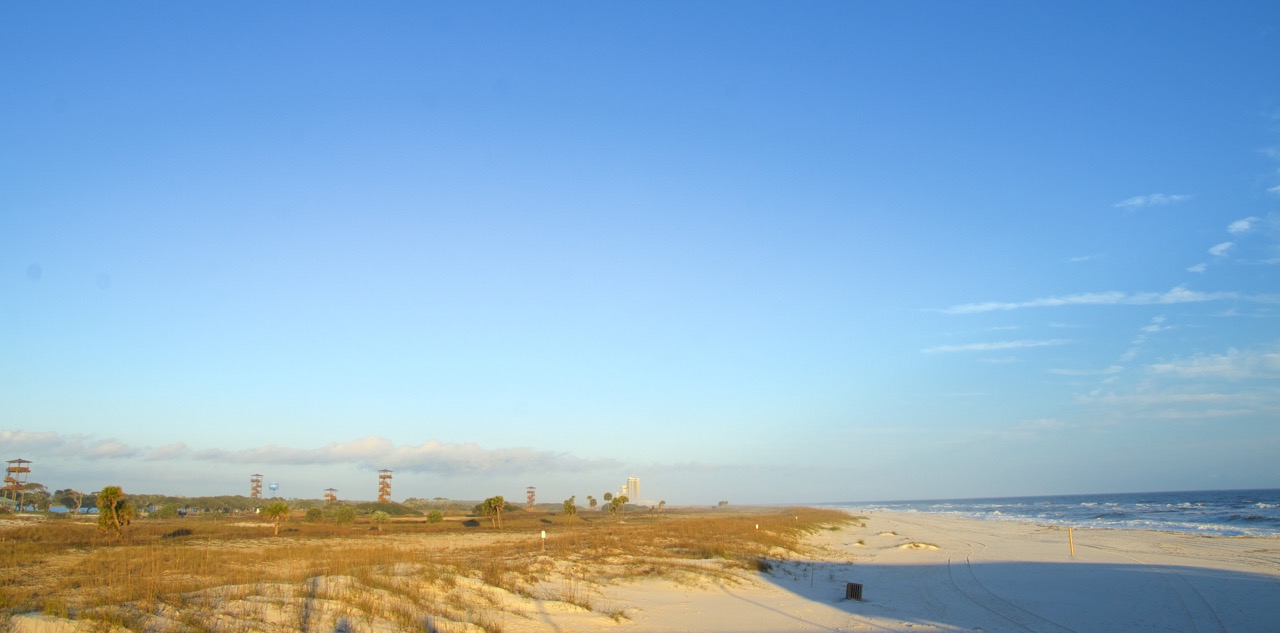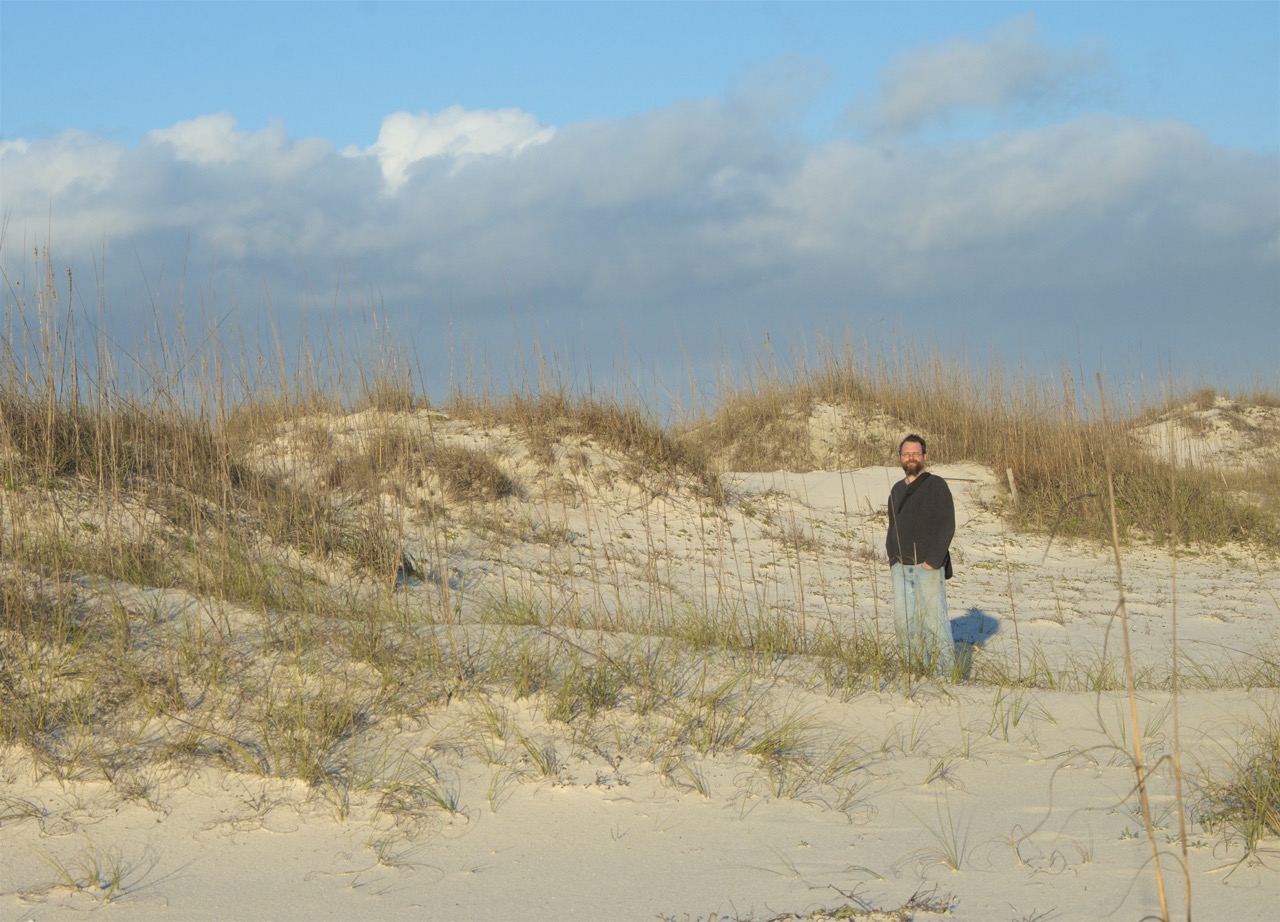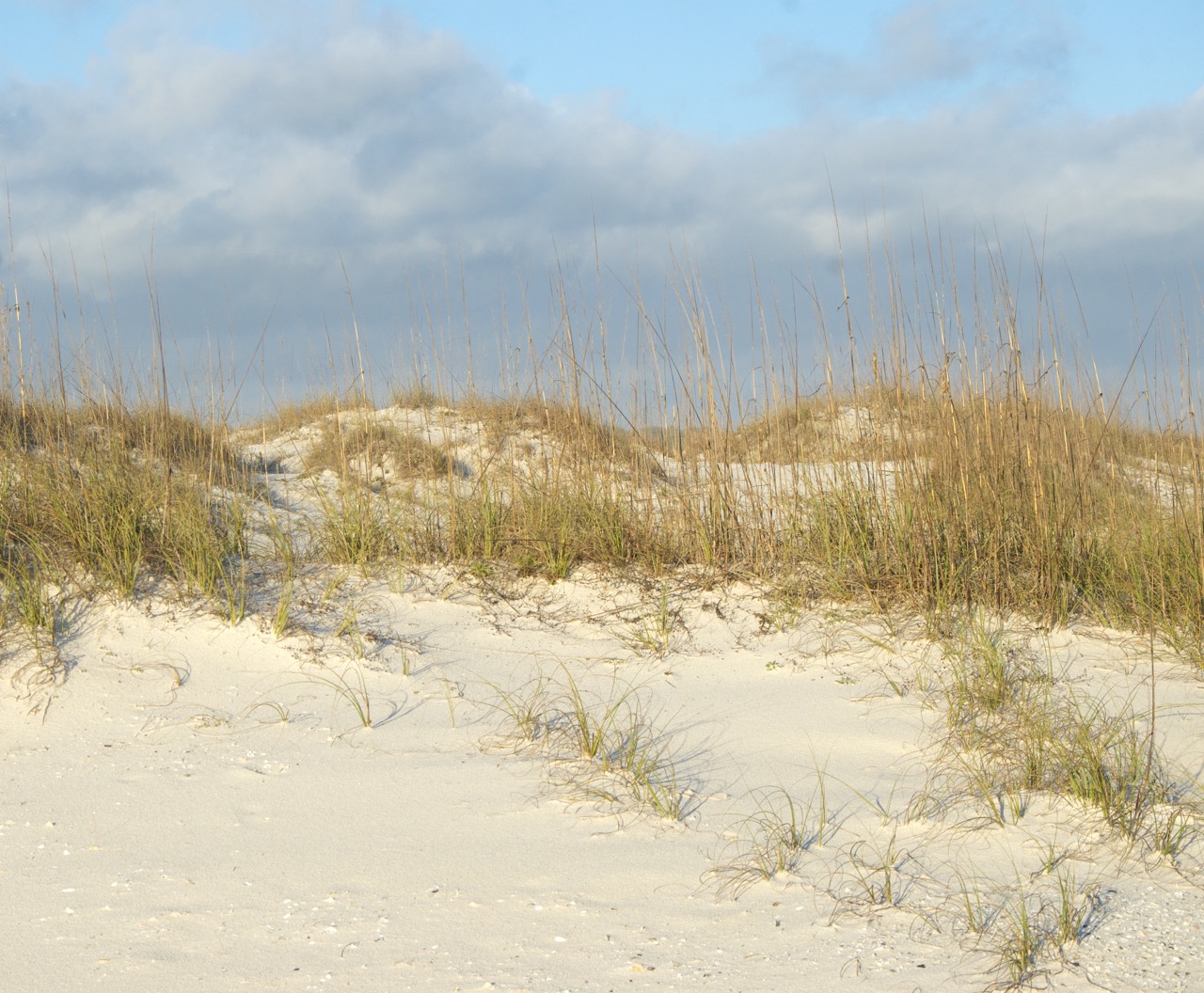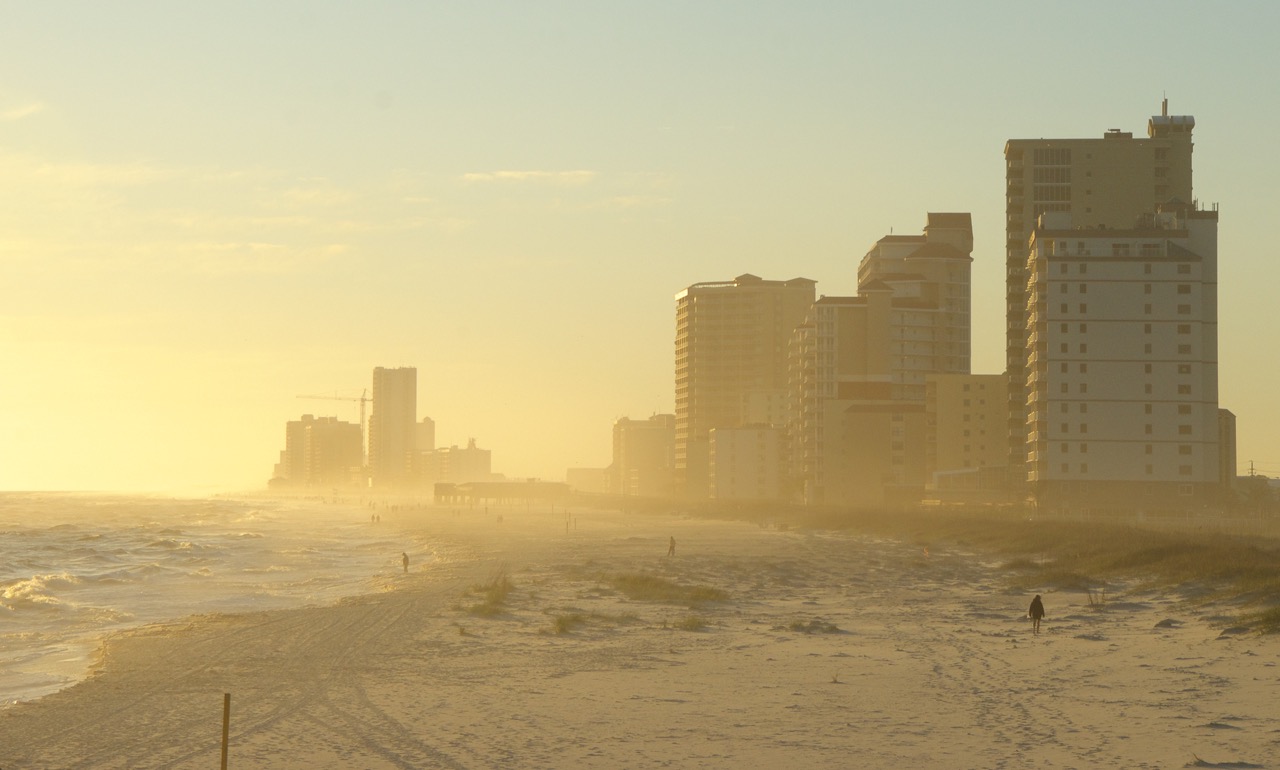
The Gulf State Park Beach with no structure: Glynn Wilson
By Glynn Wilson –
MOBILE, Ala. — A federal judge here ruled against the state of Alabama and for the Gulf Restoration Network on Tuesday and blocked the use of early BP restoration funds for the construction of a lodge and conference center on the Gulf State Park beach in Gulf Shores.
U.S. District Judge Charles Butler said in his ruling that the Trustees who were in charge of allocating the funds “acted arbitrarily and capriciously by failing to conduct a proper alternatives analysis,” as required by the Oil Pollution Act and the National Environmental Policy Act.
“The Court can, and will, enjoin the use of those funds pending further review by the Trustees,” Butler wrote. “However, based on the administrative record before it, and the narrow issue presented by the pleadings, the Court cannot enjoin the Commissioner or the State from building the lodge/conference center with funds other than early restoration funds.”
The New Orleans-based non-profit environmental advocacy group the Gulf Restoration Network challenged the process by which the project was approved, and won their case in federal court.
“If you’re going to fix natural resources, the law says you have to look at different ways of doing it,” said Robert Wiygul, a lawyer who represented the group in the case. “They didn’t do that here. The law doesn’t prevent the state of Alabama from making a bad decision, but they do prevent them from making an uninformed decision, and that’s what they did.”
“Once the trustees take a serious look at alternatives, it will be clear that this was not a reasonable use for natural resource damage funds,” he said in an e-mail interview. “We certainly hope that the money can now go to actually fixing the damage from the oil spill.”
The $85.5 million Gulf State Park Enhancement Project was among the first restoration projects approved under Alabama’s portion of early restoration funds made available by BP as part of the Natural Resource Damage Assessment (NRDA) process. The project was put forward by the state and approved by the federal trustees in the Interior and Agricultural Departments, the Environmental Protection Agency and the National Oceanic and Atmospheric Administration. The state and federal agencies were named as defendants in the lawsuit.
The plan included improvements throughout the park, including enhanced hiking and biking trails, dune restoration, an interpretive center, and a research and education campus across from Gulf Shores Elementary School. The state planned to spend $58.5 million on a new Gulf State Park Lodge. The old one was destroyed by Hurricane Ivan in 2004.
Cooper Shattuck, executive director of the project and a former legal adviser to Alabama Gov. Robert Bentley, said through a spokesman that the project will go forward in spite of the ruling.
“While we are disappointed with Judge Butler’s decision, it will not impede our progress at the park,” Shattuck said, according to the Newhouse blogsite al.com. “There are other funds available for the continued work on the lodge that do not include tax payer dollars. The court’s ruling does not affect the other aspects of the project, which will continue…”
In a statement reacting to the ruling, the Gulf Restoration Network said the court criticized the government for “circular logic” in allocating these funds “for possible use in a project that … was little more than an idea,” and emphasized that “[t]his case demonstrates the importance of providing a clear and meaningful analysis of alternatives.”
“This decision affirms that NRDA Trustees cannot merely give lip service to compliance with environmental law,” said Cynthia Sarthou, Executive Director of Gulf Restoration Network, which filed the case to challenge the use of natural resources restoration money to construct the hotel. “We are hopeful that today’s ruling will ensure that all future BP-related funding flows to the best possible restoration projects.”
“We didn’t lose any hotels or convention centers in the oil spill,” said Robert Wiygul, an attorney with Waltzer Wiygul and Garside who represented the GRN. “We lost marshes and wildlife and habitat. Let’s hope that now this money will go to fixing something that actually got broken by the oil spill.“
“Money designated for use in restoring damaged natural resources should be used for that purpose — not for building a hotel,” said Steve Roady of Earthjustice, who served as co-counsel for GRN. “The court has provided an important affirmation that NEPA establishes strong protections against such unwise government action.”
BP’s Deepwater Horizon offshore drilling rig exploded and sank in the Gulf of Mexico in April of 2010, spilling millions of barrels of oil into the ocean and onto fringing marshes and beaches. The immense damages from that disaster are still being calculated. They include the loss of more than 4 billion oysters, 50,000 birds, and trillions of fish larvae, and the oiling of 600 miles of beach, dune, and barrier island habitat. In addition, certain species of whales and dolphins were harmed so badly that populations are likely to take decades to recover — if they recover at all.
In April 2011, BP agreed with a group of state and federal agencies (Natural Resource Damage Assessment Trustees, or “NRDA Trustees”) to make available $1 billion dollars in a separate fund for early restoration of damaged natural resources. After considering various petitions from Gulf states for allocations from that fund, the NRDA Trustees agreed to allow Alabama to devote $85.5 million toward construction of the “Gulf State Park Enhancement Project.” Of the total amount, $58.5 million of this money would be set aside as partial funding for construction of a proposed lodge and conference center adjacent to the beach in Gulf Shores, Alabama.
In its ruling Tuesday, the court noted that “the Gulf State Park lodge and conference center was little more than a concept” at the time the NRDA Trustees approved funding. The court also noted that the environmental analysis conducted by the NRDA Trustees pursuant to NEPA and OPA “did not explore any potential alternative projects.” It held that this complete failure to examine possible alternatives to the construction of the lodge and conference center was a clear violation of law.
Accordingly, the court entered judgment against the government, declaring that “[t]he Federal Trustees have violated NEPA and OPA by failing to conduct a proper alternatives analysis with respect to the Gulf State Park lodge and conference center.” It enjoined both the Federal Trustees and the Alabama Trustee from “expending any of the $58.5 million in early restoration funds for use in the development and construction of the Gulf State Park lodge and conference center until such time as the Trustees comply with the alternatives analysis requirements of OPA and NEPA.”
Read the judge’s decision by clicking here.
We are still seeking reaction comments from other participants in the case and will add quotes as they come in.
More Photos

A panorama of the Gulf State Park Beach and the Gulf Shores public beach showing how wide the beach is on the state side where there is no structure and the erosion in front of the high-rise condos in Gulf Shores: Glynn Wilson

Notice how tall the dunes are now on the Gulf State Park Beach: Glynn Wilson

Notice how tall the dunes are now on the Gulf State Park Beach: Glynn Wilson

The eroded beach in Gulf Shores in front of the high-rise condos there: Glynn Wilson













